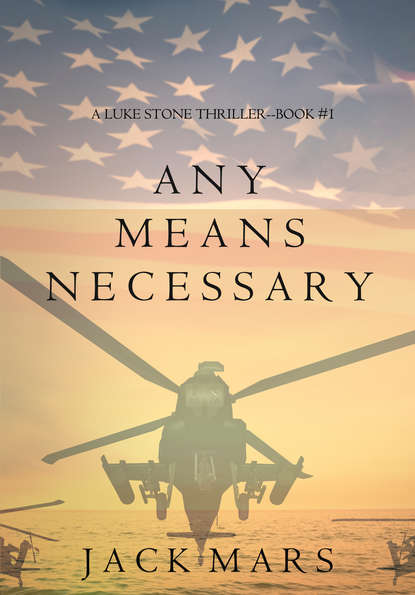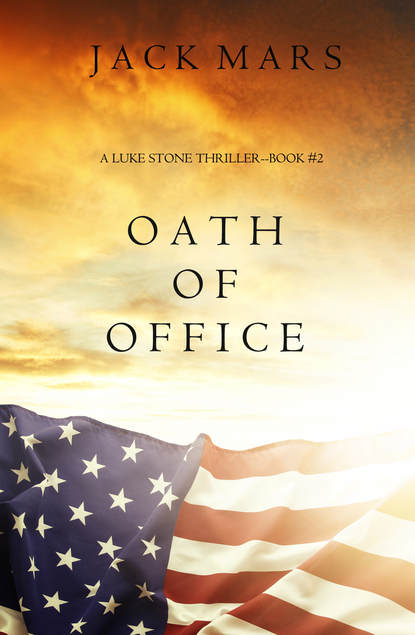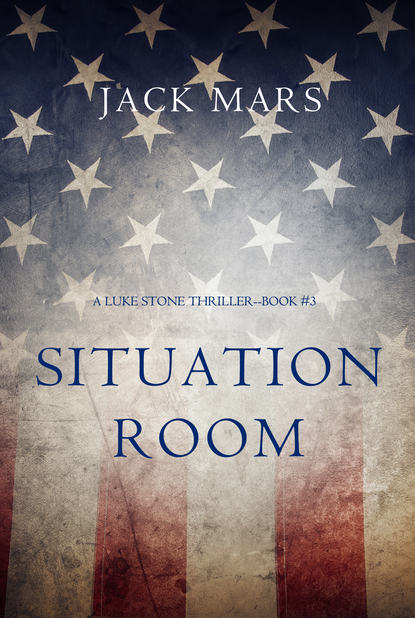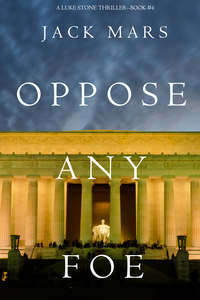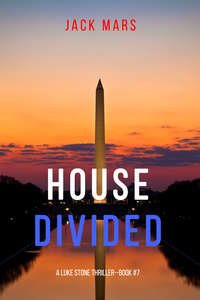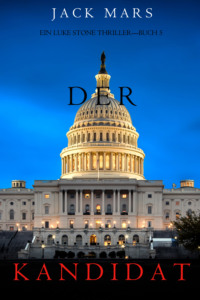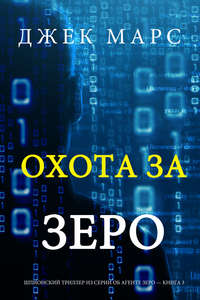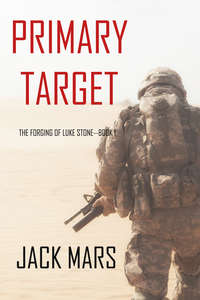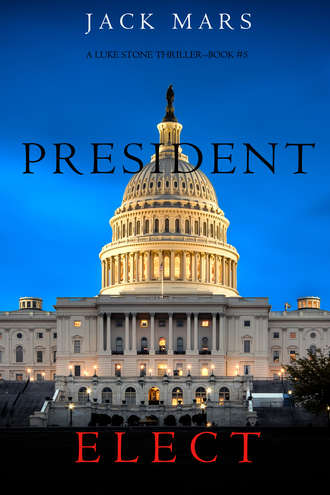
Полная версия
President Elect
Monroe himself stared out at the crowd with his deep-set, steely eyes. He was seventy-four years old, white-haired, with a lined and weathered face – a face that seemed much older than its years. Judging by his face alone, he could have been a hundred years old, or a thousand. But he was tall, and stood erect. By all accounts he slept three or four hours a night, and that was all he needed.
He wore a freshly starched white dress shirt open at the throat with no tie – another signature of his. He was a billionaire, or close to it, but he was a man of the people, by God! A man who had come from nothing. Dirt poor, from the mountains of West Virginia. A man who, despite his newfound wealth, despised the rich all his life. A man who, more than anything, despised the liberals, especially Northeasterners, and New Yorkers in particular. No fancy pants, Washington, DC insider suit and power tie for him. He somehow managed to conveniently overlook that he himself was the ultimate Washington insider, that he had spent twenty-four years in the United States Senate.
Susan supposed there was some modicum of truth to his affect. He’d had a hardscrabble upbringing in Appalachia – that was common knowledge. And he had clawed his way up and out from there. But he was no friend of the common man, or woman. To orchestrate his climb, he had always, from his earliest days – aligned himself with the most backward elements in American society. He had been a Pinkerton thug as a young man, attacking striking coal miners with clubs and ax handles. He had spent his entire career in the back pocket of the major coal interests, always fighting for less regulation, less workplace safety, and fewer workers’ rights. And he had been rewarded handsomely for his efforts.
“I told you,” he said into the microphone.
The crowd erupted into raucous cheers.
Monroe tamped it down with a hand. “I told you we were going to take America back.” The cheering started again. “You and me!” Monroe shouted. “We did it!”
Now the cheering changed, gradually morphing into a chant, one with which Susan was all too familiar. It had a funny awkward sort of cadence, this chant, like a waltz, or some kind of call-and-response.
“AMERICA! IS OURS! AMERICA! IS OURS! AMERICA! IS OURS!”
It went on and on. The sound of it made Susan sick to her stomach. At least they hadn’t started in on the “Kick Her Out!” chants that had become popular for a while. The first time she had heard it, it nearly brought her to tears. She knew a lot of the people involved were probably just showboating. But at least some of these lunatics really did want to hang her, supposedly because she was a traitor in league with the Chinese. The thought of it left a hollow place inside of her.
“No more empty factories!” Monroe shouted. Now it was his turn to raise a triumphant fist in the air. “No more crime-ridden cities! No more human filth! No more Chinese betrayals!”
“NO MORE!” the crowd answered in unison, another of their favorite chants. “NO MORE! NO MORE! NO MORE!”
Kurt Kimball, crisp, alert, big and strong as always, with a perfectly bald head, stepped in front of the TV and used the remote control to mute the sound.
It was as if a spell had been broken. Suddenly Susan was completely aware of her surroundings again. She was here in the sitting area of the Oval Office with Kurt, his close aide Amy, Kat Lopez, Secretary of Defense Haley Lawrence, and a few others. These were some of Susan’s most trusted advisors.
On a closed-circuit video monitor, Susan’s Vice President, Marybeth Horning, was attending. After the Mount Weather disaster, security protocols had changed. Marybeth and Susan were never supposed to be in the same place at the same time. And that was a shame.
Marybeth was a hero of Susan’s. She was the ultra-liberal former senator from Rhode Island who had lectured at Brown University for more than two decades. She seemed mousy and frail, with a bob of gray hair and round-rimmed granny glasses.
But looks, in this case, were deceiving. She was also a thunderous firebrand for workers’ rights, women’s rights, the rights of gay people, and the environment. She was the mastermind of the successful healthcare initiative Susan’s administration had launched. Marybeth was at once an unassuming genius, a student of history, and a vicious political infighter with sharp elbows.
Another sad thing: Marybeth lived in Susan’s old house on the grounds of the Naval Observatory. The house was one of Susan’s favorite places on Earth. It would be nice to go there once in a while.
“This is a problem,” Kurt Kimball said, gesturing at the silent TV.
Susan nearly laughed. “Kurt, I’ve always admired your gift for understatement.”
Jefferson Monroe had made a campaign promise – a promise! – that he would go to Congress and seek a Declaration of War against China on his first official day in office. In fact, and most people had trouble taking this seriously, he had implied that the American military’s first move would be tactical nuclear strikes against China’s artificial islands in the South China Sea. He had also promised that he would erect security walls around Chinatowns in New York, Boston, San Francisco, and Los Angeles. He said he would demand the Canadians do the same in Vancouver and Calgary.
The Canadians, quite naturally, had balked at the idea.
“The country has gone insane,” Kurt said. “And Monroe is expected to call for your concession speech again, Susan.”
Kat Lopez shook her head. As Susan’s chief-of-staff, Kat had matured and come into her own these past couple of years. She had also aged about ten years. When she came in, she had been a surreally beautiful and youthful thirty-seven – now she looked every minute of thirty-nine, and then some. Lines had appeared on her face, gray was invading the jet black of her hair.
“I advise you not to do that, Susan,” she said. “We have evidence of widespread minority voter suppression in five Southern states. We have the suspicion of outright polling machine fraud in Ohio, Pennsylvania, and Michigan. The counts are still too close to call in many places – just because the TV stations have called these states for him, doesn’t mean we have to. We can make this thing drag out for weeks, if not months.”
“And cause a presidential succession crisis,” Kurt said.
“We can weather it,” Kat said. “We’ve seen worse. The inauguration isn’t until January twentieth. If it takes that long, so be it. It buys us time. If there was fraud, our analysts will discover it. If there was voter suppression like we think, there will be lawsuits. In the meantime, we’re still governing.”
“I’m with Kat on this,” Marybeth chimed in through the monitor. “I say we fight until we drop.”
Susan looked at Haley Lawrence. He was tall and heavyset, with unkempt blond hair. His suit was so wrinkled it was almost as if he had passed out in it. He looked like he had just awoken ten minutes ago from a fitful sleep full of nightmares. Except for their shared height, he and Kurt Kimball were near opposites in appearance.
“Haley, you’re the only Republican in this room,” Susan said. “Monroe’s in your party. I want your thoughts on this before I decide anything.”
Lawrence took a long moment before answering. “I don’t think that Jefferson Monroe is really a Republican. His ideas are far more radical than conservative. He surrounds himself with gangs of young thugs. He spent the past year appealing to the most backward and basest notions of angry and resentful people. He is a danger to world peace, the social order, and the very ideals that this country was founded upon.”
Haley took a long breath. “I would hate to see him and his ilk occupy this office and this building, even if it turns out that he really did win. If I were you, I would obstruct him as long as possible.”
Susan nodded. It was what she wanted to hear. It was time to gear up for battle. “All right. I won’t concede. We’re not going anywhere.”
Kurt Kimball raised a hand. “Susan, I’ll go along with whatever you want to do, as long as you realize the potential consequences of these actions.”
“Which are?”
He began to tick them off on his fingers, in what seemed like no particular order, as if he were ready to describe each one as it occurred to him.
“By not voluntarily surrendering the seat, you are breaking with a two-century tradition. You will be called a traitor, a usurper, a would-be dictator, and probably worse. You will be breaking the law, and you could eventually be brought up on charges. If no evidence of election fraud arises, then you will look vain and foolish. You could hurt your place in the history books – at this moment, you have a sterling legacy.”
Now Susan raised her hand.
“Kurt, I understand the consequences,” she said, and took a deep breath.
“And I say bring them on.”
CHAPTER FOUR
November 11
4:15 p.m. Eastern Standard Time
Mount Carmel Cemetery
Reston, Virginia
A single red rose, just cut, lay on the brown grass. Luke stared at the name and the epitaph carved into the gleaming black marble.
REBECCA ST. JOHN
To Live, to Laugh, to Love
The bleak overcast day was already fading and night was coming on. He felt a shiver go through him. He was overtired from the long trip back east. He was also clean-shaven, with short hair – no longer protected from the chill by his shaggy mane. He looked away from the stone and stared out at the cemetery, row upon row of gravestones covering rolling hillsides in a quiet part of suburban DC.
He gazed up at the gunmetal sky. When they married, Becca had taken his last name. Apparently, she had chosen to go to her grave under her maiden name. That burned him, all the way deep inside. Their rupture had been complete. He almost shook his fist at the sky, at Becca, wherever she might be now.
Did he hate her? No. But she made him very, very angry. She had blamed him for everything that went wrong in their marriage, right up to and including her own death from cancer.
On the cemetery road, just down the hill and about a hundred yards away, a sleek black limousine pulled up in front of Luke’s nondescript rental sedan. As he watched, a chauffeur in black jacket and cap opened the back door of the limo.
Two figures emerged. One was young and male, growing tall like his father. The boy wore jeans, sneakers, a dress shirt, and a windbreaker jacket. The other figure was old and female, stooped a bit, wearing a long heavy wool coat against the damp autumn air. Luke didn’t have to guess who they were – he already knew.
Luke had cheated. Of course he had. Fifteen minutes ago, he had been tailing that same limousine. When he guessed where it was going, he decided to beat it here. The two people working their way slowly up the footpath now, arm in arm, were Audrey, Becca’s seventy-two-year-old mother, and Gunner, Luke and Becca’s thirteen-year-old son.
Luke looked away for a moment as they approached, scanning the horizon as though something interested him out there. When he turned back again, they were nearly here. He watched them come. Audrey moved slowly, carefully studying her own feet as they touched the ground – she seemed older than her years. Gunner stepped awkwardly along with her, supporting her. The slow pace seemed like it would make him lose his balance – he was like a young colt trapped in a stall, all frustrated energy, desperate to unleash his own speed and power.
Gunner stared quizzically at Luke, but only for a few seconds. It had been nearly two years since last they’d met – an immense amount of time at the boy’s age – and for a brief moment, it was clear he didn’t know who Luke was. His face darkened when he realized he was staring at his own father. Then he looked at the ground.
Audrey knew who Luke was right away.
“Can we help you?” she said before they even reached the grave marker.
“You can’t,” Luke said. Audrey and her husband, Lance, had never accepted him as their son-in-law. They had been a toxic influence on his marriage since well before he and Becca exchanged their vows. Luke had nothing to say to Audrey.
“What are you doing here, Dad?” Gunner said. His voice was deeper now. His throat had the cleft of an Adam’s apple – that hadn’t been there before.
“I was called here by the President. But I wanted to see you first.”
“Your President lost,” Audrey said. “She’s holed up inside the White House like a lunatic, refusing to admit defeat. I always knew there was something suspect about her. Now it’s on full display for the world to see. Was she hoping to become Emperor?”
Luke looked at Audrey, taking his time, soaking her in. She had deep-set eyes with irises so dark, they seemed almost black. She had a sharp nose, like a beak. Her shoulders were hunched, and her hands were impossibly frail. She reminded him of a bird – a crow, or maybe a vulture. A carrion eater, in any case.
“She lost,” Audrey said again. “She needs to get over it and prepare to hand over power to the winner.”
“Gunner?” Luke said, ignoring Audrey now. “Can we talk?”
“I told Rebecca in no uncertain terms not to marry you. I told her it would end in disaster. But I never could have imagined that it would come to this.”
“Gunner?” Luke repeated, but now the boy was looking away. Luke saw a tear slide down Gunner’s face. The kid swallowed hard.
“I just want to apologize.”
The words came out wrong. An apology? That wouldn’t nearly cut it. Luke knew that. It was going to take a lot more than an apology to set this situation right again, if that was even possible. He wanted to tell Gunner that. He wanted to tell him he would do anything, everything, if only he would let him back into his life.
He had made a terrible mistake. He would spend the rest of his life on this. He would fix it.
Gunner looked at him, openly crying now. The tears streamed down his face. “I don’t want to talk to you.” He shook his head. “I don’t want to see you. I just want to forget about you, don’t you understand?”
Luke nodded. “Okay. Okay, I can respect that. But know that I love you and I’m always open to hearing from you. Do you still have my number? You can call me if you change your mind.”
“I don’t have your number,” Gunner said. “And I won’t change my mind.”
Luke nodded again. “In that case, I’ll leave you alone.”
Audrey’s voice followed Luke down the path. “That sounds like a good idea,” she said. “Leave the boy alone.” Then she laughed, a mad cackle that would have sounded almost like a coughing fit if Luke didn’t know better.
“Leave us alone with our dead.”
Luke made it to his car, put it in gear, and was almost to the cemetery gates before he started crying himself.
CHAPTERR FIVE
4:57 p.m. Eastern Standard Time
Bubba’s Lounge
Chester, Pennsylvania
No one remembered who Bubba was.
The small tavern had sat there on a street corner in the southeast end of Chester, near the river, since sometime after World War II. Ten different people had owned it at one time or another, and it had always been called Bubba’s, as far as anyone knew. But no one knew why.
“I guess she’s going to throw in the towel,” one man at the bar said.
“About time,” said another.
Marc Reeves was working the stick today. Marc was an old-timer, sixty-seven years of age. He had poured beer at this bar, off and on, for the past twenty-five years, outlasting three owners in the process. He had watched the whole town go down the tubes right from this bar. In a city where damn near everything was boarded up or about to be, Bubba’s was a success story. Even so, nobody kept it for long.
The place broke even – that was the problem. It didn’t lose money, it didn’t make money. You were better off working there, or drinking there, than owning it. At least you got something for your trouble.
There was a big old box color TV set mounted on an iron rod behind the bar. This time of the afternoon, the place had four or five daytime drinkers lined up along the rail, wasting their Social Security checks and whatever was left of their livers. Usually the television was set to whatever game happened to be on. Today was different, though. Today the President was holding her first press conference since she lost the election.
Marc had been skeptical of her when she first came into office, especially considering the circumstances, but she had grown on him. He thought she had done a pretty good job, all in all. She, and the country, had weathered a lot of storms. So he had done something yesterday that he rarely did – he had voted for her. He hadn’t stepped inside a polling place in twelve years before that.
Not everyone agreed with his decision.
“I like the new guy,” a fat man along the rail said. Everybody called him Skipper. He’d probably never been on a boat in his life. “What has Susan Hopkins ever done for Chester, Pennsylvania? That’s what I want to know. Anyway, it’s about time somebody put a stop to all these Chinamen flooding the country.”
“And bring back our jobs while you’re at it,” a man named Steve-O said. Steve-O was so thin he was like one of those man-like pipe cleaner sculptures. He came in here and drank beer and bourbon every single day. Marc had never seen Steve-O eat even a bite of food. He seemed to survive on alcohol alone.
Marc was drying pint glasses that had just come out of the washer. “Steve-O, you’ve been on disability for twenty years.”
“I don’t mean bring my job back,” Steve-O said.
A few people laughed.
On the TV, an empty podium appeared. It was flanked by American flags.
“Ladies and gentlemen,” a hushed voice said, “the President of the United States.”
Susan Hopkins walked onto the stage from the right. She wore a tan pantsuit, her hair in a short blonde bob. Beautiful. Marc remembered her from her modeling days, in particular a certain Sports Illustrated swimsuit issue from twenty-five years ago. He had been middle-aged then, married with kids. There was something heartbreaking about her photo shoot – she was ethereal, unattainable, from another world. He didn’t have the words for what she was. And if anything, she looked even better now – more down to Earth, more mature. Marc liked a woman with a little mileage on her.
“Take it off, baby!” Steve-O said, eliciting some giggles from the others.
Marc had served Steve-O six shots and six beers in the past couple of hours. He’d say Steve-O was visibly intoxicated by now. And he was starting to pluck Marc’s nerves. “You’re about to get cut off, Steve-O.”
Steve-O looked at him. “What?”
“Shut up or go home. That’s what I’m saying.”
Marc turned back to the TV screen. Hopkins still hadn’t said anything yet. She seemed to be choking back some emotion. This was it, then. She was going to concede the election. She had seemed popular, but in the end she had been a one-term President – and not even a full term.
“My fellow Americans,” she said.
The bar was silent. The room where she spoke was almost silent – Marc could hear the whirr and click of cameras taking photos.
“I’m going to keep my remarks brief. This was a hard-fought campaign between two very different visions of America. One vision is of optimism, understanding, and pride for what we’ve accomplished as a nation. The other is a dark vision of anger, despair, resentment, and even paranoia. It sees our nation as a ruined landscape, which can only be saved by the efforts of one man. And it promises violence – violence against our most important trading partner, as well as violence against our own communities, our neighbors, and our friends.
“I’m sure you know which vision I embrace. I cannot accept a worldview based on racism, prejudice, and mistrust. And yet, despite my misgivings, under normal circumstances my task now would be to congratulate the apparent victor in this race, and welcome the President-elect, graciously preparing for the peaceful transfer of power that is a hallmark of our democracy.”
She paused. “But these are not normal circumstances.”
Marc stood up straight. He felt a tingle along his spine. He looked along the bar at the men lined up. Every single one of them was glued to the television now. Every one of them was suddenly alert, like animals before an approaching thunderstorm. What was she saying?
“My campaign has discovered evidence of Election Day irregularities in at least five states, including voter suppression, but also including outright tampering with and potential hacking of election machinery. We have reason to believe that the election was stolen, not just from our campaign, but from the American people. We have already contacted the FBI and the Justice Department about our concerns, and we look forward to a full, impartial investigation. Until such an investigation is completed – however long it takes – I cannot and will not recognize the results of this election, and I will continue to perform the duties of the President of the United States, carrying out my oath to protect and uphold the Constitution. Thank you.”
On the TV, President Hopkins moved to the right and off screen. There was a babble of voices as reporters shouted, competing with each other for her attention. Flashbulbs popped. The TV station switched to a different camera, one focused on the President as she was hustled out a side door behind a sea of very large Secret Service agents. She hadn’t taken a single question.
“What does that mean?” Steve-O said. “Can she do that?”
No one said a word.
Marc just kept drying pint glasses. He didn’t know the answer to that himself.
CHAPTER SIX
5:48 p.m. Eastern Standard Time
34th Floor
The Willard Intercontinental Hotel, Washington DC
“Are we a nation of laws?” the man shouted into the telephone.
He sat with his feet up on his wide desk of polished oak, gazing out the floor-to-ceiling window at the lights of the Capitol. It was dark out – the sun set early this time of year.
“That’s what I want to know. Because if we are a nation of laws, then that woman, the current occupant of the White House, needs to start packing her bags. She lost, and Jefferson Monroe won. Jefferson Monroe is the President-elect of the United States. And come inauguration day, if the current occupant is not out, we are going to evict her, like the sheriff evicting a deadbeat tenant.”
For a few seconds, the man paused, listening to the reporter on the other end of the line.
“Oh yeah, you can quote me. Print every word of it.”
He hung up the phone and slid it onto the desk. He checked his watch and breathed deeply. He had been on the phones with reporters for nearly an hour, ever since Susan Hopkins had run off the stage and darted out of the room at the end of her silly press conference.
The man’s name was Gerry O’Brien. At age fifty, he was very tall and rail thin. He was balding, and his face was all angles and jutting cliffs. He weighed the same as he had the day he graduated from college. He was a marathoner, a triathlete, and in recent years, he had gotten into doing mud runs and survival runs. Anything hard, anything tough, anything extreme where people dropped over sideways, or puked up their guts, or fell down a hill and tore open their knees, it had his name on it.
The son of Irish immigrants, he had come up on the streets of Woodside, Queens. His father was a prison guard. His mother was a maid. Hard people, and they raised him to be hard. You wanted to grow up in Woodside, you had to fight. Okay? He didn’t mind. He’d go toe to toe with anybody. He was so fierce, so remorseless, that kids in the neighborhood called him the Shark.
He was the first person in his family to go to college, and then – uncharted territory – law school. He made his first million before he was thirty, chasing ambulances – personal injury law.
He’d gotten a photo taken of himself looking very angry (and few people had the ability to look as angry as he could) and paid for small poster advertisements placed throughout the subway system.
Injured? You need somebody tough to stand up for your rights. A real lawyer. A real New Yorker. You need Gerry O’Brien. You need the Shark.




